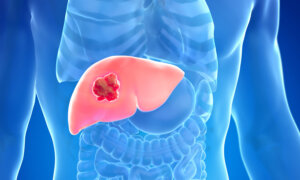While cholesterol has historically been blamed for heart disease, and many have been told to avoid eggs and animal fats, it actually plays a crucial role in maintaining overall health.
Cholesterol stabilizes cell membranes, supports the production of steroid hormones like cortisol, testosterone, and estrogen, and aids in the body’s natural healing processes. It also helps produce vitamin D when the skin is exposed to sunlight, combats inflammation, and protects nerves.
However, the real issue might not be what we eat but how our body processes and manages cholesterol.
Clarifying Cholesterol
“Cholesterol itself is not harmful; the problem arises when LDL cholesterol becomes oxidized,” Jodi Duval, a naturopathic physician and owner of Revital Health, told The Epoch Times.
LDL (low-density lipoprotein, also known as “bad” cholesterol) is produced by the liver and sent to areas in the body that need repair. It acts as a healing agent and a building block for cell regeneration. However, when LDL becomes oxidized, it turns harmful.
Cholesterol becomes oxidized when it interacts with oxygen. This process involves reactive oxygen species, or free radicals, damaging LDL particles and making them harmful. Oxidized LDL triggers inflammation and plaque buildup in the arteries, which contributes to atherosclerosis—a key driver of heart disease.
Cholesterol levels should be managed primarily in the context of metabolic syndrome, insulin resistance, or other cardiovascular risk factors, Duval said.
Remember that cholesterol is not just one number; it comes in different forms, including LDL and high-density lipoprotein (HDL). HDL is known as “good” cholesterol because it helps remove excess LDL cholesterol from the bloodstream, transporting it to the liver for processing.
Diet and Blood Cholesterol
Dietary cholesterol has been debated since the 1960s when guidelines first recommended limiting cholesterol intake.
However, research in the late 1990s challenged this advice, showing little to no correlation between dietary cholesterol and blood cholesterol levels. When cholesterol intake increases, the body compensates by reducing absorption and lowering its cholesterol production, with the liver playing a central role in this balancing act. These mechanisms suggest diet alone isn’t the main driver of blood cholesterol levels.
“For most people, the amount of cholesterol eaten has only a modest impact on the amount of cholesterol circulating in the bloodstream,” said Dr. Garrett Garner, an obstetrician-gynecologist and medical director at SimpleFixRx, an online pharmacy platform.
In one case study, an 88-year-old man ate 25 eggs a day (about 4,500 milligrams of cholesterol) yet maintained normal blood cholesterol levels and had no significant atherosclerosis. His body adapted by reducing cholesterol absorption, increasing bile acid production (compounds that break down fat for easier digestion), and lowering its own cholesterol production.
Though this is a dramatic case and does not apply to most people, an April 2024 study examined the effects of eating 12 or more fortified eggs per week versus fewer than two eggs per week. A total of 140 participants were included who had or were at high risk of cardiovascular disease. Over four months, the study found no differences in LDL or HDL cholesterol or other key cardiovascular health markers between the two groups.
The Liver’s Key Role
Since diet plays a smaller role in cholesterol management than commonly believed, focusing on the liver’s ability to regulate cholesterol levels is essential.
“If you have a cholesterol problem, it typically involves either the rate at which the liver produces cholesterol or the rate at which it removes cholesterol from the bloodstream,” Dr. Gabrielle Lyon, a board-certified family physician, told The Epoch Times.
The liver is the main organ that controls cholesterol and is crucial for keeping cholesterol levels stable.
However, these processes are influenced by genetics, diet, lifestyle, and underlying health conditions, making cholesterol management a multifaceted issue, Lyon said.
Instead of fixating on lowering cholesterol levels, it is more important to address the underlying root causes.
Eating cholesterol-rich foods does not significantly raise blood cholesterol levels because the liver adjusts its production accordingly. However, diet is still important, especially for managing inflammation. Chronic inflammation can impair the liver’s ability to regulate cholesterol properly, which is why an anti-inflammatory diet may help restore balance.
Address the Root Cause
According to Duval, the following three key strategies can help you address underlying cholesterol imbalances.
1. Reduce Inflammation
High inflammation levels prompt the liver to release more LDL to damaged tissues. To reduce systemic inflammation, eat an anti-inflammatory diet rich in omega-3 fats (such as fatty fish and flaxseeds) and antioxidants (such as berries, turmeric, and green tea), and eliminate inflammation-promoting foods like refined sugars, trans fats, and ultra-processed food.
2. Enhance Liver Function
Ensuring your liver is functioning optimally will support its ability to regulate cholesterol levels effectively.
The following supplements support liver function:
- Milk thistle supports liver detoxification and helps combat oxidative stress.
- Curcumin reduces liver inflammation and promotes bile flow.
- N-acetyl cysteine (NAC) boosts glutathione (the liver’s primary antioxidant).
3. Adopt Healthy Lifestyle Habits
Keeping cholesterol in check also requires staying physically active and monitoring other lifestyle behaviors, such as the following:
- Exercise regularly to improve liver fat metabolism and increase HDL (good) cholesterol.
- Stay well-hydrated to support bile production and cholesterol excretion.
- Manage stress to lower cortisol levels, which can otherwise promote inflammation, alter fat metabolism, and disrupt cholesterol balance.
- Avoid smoking to reduce oxidative stress and inflammation, both of which contribute to cholesterol imbalances.
- Maintain physical activity to support overall cardiovascular health and cholesterol regulation.
- Be mindful of genetic factors, as they can influence cholesterol metabolism and require a more personalized approach to management.
Rather than eliminating eggs and animal fats, adopting a balanced approach to eating allows the body to regulate cholesterol naturally. This means prioritizing nutrient-dense foods while avoiding excessive intake of any single food group. At the same time, addressing underlying factors—such as inflammation and liver function—helps the body manage cholesterol more effectively.









